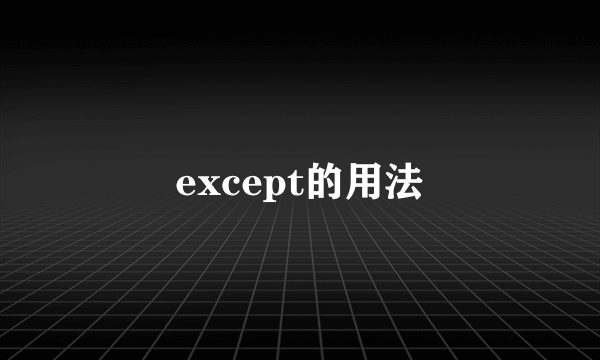except的用法
的有关信息介绍如下:except是一个多功能的英语单词,主要用作连词、介词和动词,具有丰富的用法和例句。以下是except的主要用法和例句:连词:表示“除非;除……之外”。例如:We all succeeded except Jack.(除了Jack,我们都成功了。)He said he's booked up the whole week except tomorrow.(他说除了明天,整个星期都预定好了。)介词:表示“除……之外”。例如:Everyone else has gone home except me.(除了我,其他人都回家了。)Except for the red car, all the others are blue.(除了那辆红色汽车,其他都是蓝色的。)动词:表示“把……除外;不计”。例如:Please put a tick into the box, except the last question.(请在相应的方框内打钩,除了最后一个问题。)I would go, except it's too far.(我是要去,但是路太远了。)特殊用法:except后面可以接名词、代词、动词、副词、介词短语和从句等。例如:He did nothing except watch TV.(除了看电视,他什么也没做。)The article is good except that it's too long.(这篇文章很好,只是有点长。)与其他介词的区别:与“except for”的区别在于,“except for”通常用于指出整体中某个部分的例外情况,尤其是当这部分与整体在性质上不同时。例如:The composition is good except for a few spelling mistakes.(除了几个拼写错误,这篇作文写得很好。)与“besides”的区别在于,“besides”表示“除了……之外还有”,而“except”表示“除了……之外没有”。例如:I like all the fruits besides apples.(我喜欢除苹果以外的所有水果。)通过掌握这些基本用法和例句,可以更好地理解和使用except这个词。




